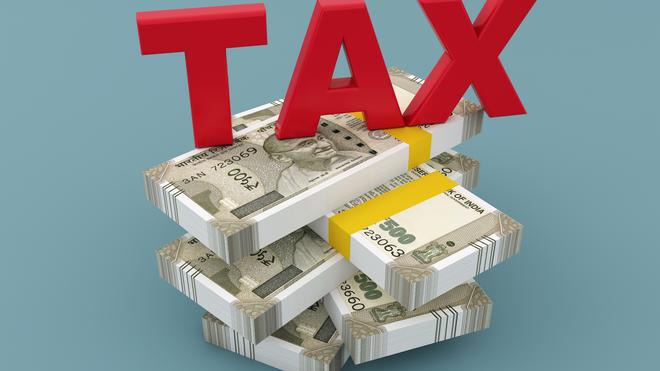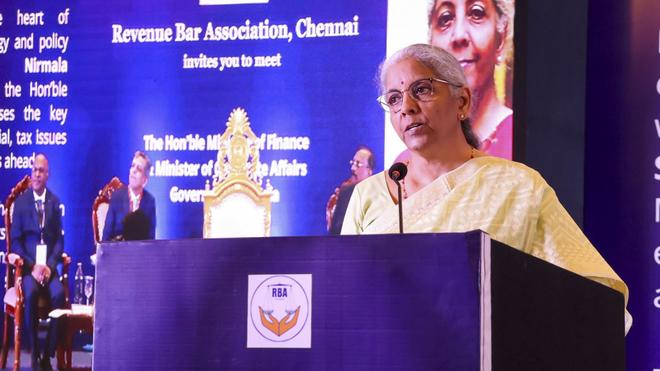Anticipated allocations around personal taxation from upcoming Budget keeping fiscal deficit in mind
Union Finance Minister Nirmala Sitharaman is set to present Union Budget 2024 on July 23. This will be the first full-year Budget for the new government, now in its third term.
The fiscal deficit for FY 2023-24 was 5.63% of GDP with a target of 5.1% for FY 2024-25. Given the significant share of personal tax in overall direct-tax collections, the government is unlikely to introduce measures that would greatly reduce tax revenue. Here are key expectations from individual taxpayers and potential government changes to minimise fiscal deficit impact:
Standard Deduction: The government aims to shift more taxpayers to the simplified tax regime. However, the old regime’s benefits have hindered progress. With recent high inflation rates, it is expected that the standard deduction will increase from ₹50,000 to at least ₹1,00,000, or be adjusted annually with the cost inflation index. Increasing this deduction will not only provide relief to taxpayers but also align the tax system with the economic realities of rising living costs.
NPS employee contribution deduction: The old tax regime allows an additional ₹50,000 deduction for employees’ NPS contributions, which isn’t available under the simplified regime. Allowing this deduction under the simplified regime could make it more attractive and encourage retirement savings. This would not only support individual financial security but also reduce dependence on Provident Fund, aligning with the government’s broader financial inclusion goals.
Reintroduction of deduction for investment in infrastructure bonds: To support its capital expenditure on infrastructure, the government may reintroduce a deduction for investments in infrastructure bonds. Previously, a deduction of ₹20,000 was allowed in FY 2010-11 and 2011-12. A new deduction of ₹50,000 for such investments under the simplified regime could be considered. This would encourage investments in critical infrastructure projects, fostering economic growth and employment.
Affordable housing deduction for interest paid on loan The deduction of up to ₹1.5 lakh per annum for interest on home loans for first-time buyers where the stamp duty value of such property does not exceed ₹45 lakh, which expired in March 2022, should be reinstated. This would provide relief to low-income taxpayers seeking affordable housing. Reviving this deduction aligns with the government’s vision of ‘housing for all’ and addresses the pressing need for affordable housing solutions amidst rising property prices.
Metro cities for HRA: Currently, a higher HRA exemption of 50% is limited to Delhi, Mumbai, Chennai, and Kolkata. Given Bengaluru’s growth and rising rental costs, employees in Bengaluru should also receive a 50% HRA deduction. Expanding this exemption to Bengaluru acknowledges the city’s economic significance and the financial burden on its residents due to escalating living expenses.
Realignment of period of holding for capital gains: Different types of capital assets have different holding periods under the current regulations used to categorise them into short-term and long-term. The government may consider extending the holding period for shares and equity-oriented mutual funds from 12 to 24 months for long-term capital asset classification. This would result in a higher tax rate of 15% for transactions within 24 months. Aligning the holding period and tax rates addresses the volatility and risks associated with equity investments, promoting a more stable investment environment.
Tax collection at source (TCS) on jewellery: To widen the tax base, the government could introduce TCS on high-value jewellery purchases, similar to TCS on high-value car purchases. This would bring such transactions under the tax authorities’ radar. Implementing TCS on jewellery purchases would enhance transparency and ensure compliance, aiding in the detection of unreported income and curbing tax evasion.
Overall, the upcoming Budget is expected to balance taxpayer relief with measures to maintain fiscal discipline.
(Alok Agrawal is a Partner with Deloitte India)



)
)

)

)

)
)
)
)
)
)








